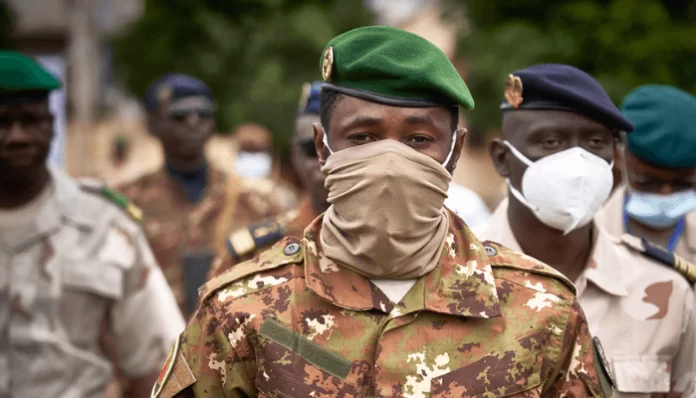Growing public discontent, poverty, absence of law and fragile State institutions may lead to Togo becoming the next on the list of coup countries, according to The Elephant.
After a series of coups in Africa, speculation became widespread as to which country would be next, and Togo was presumed to be the next prime candidate.
The 1963 coup in Togo was the first on the continent under the leadership of Gnassingbé Eyadéma. He then organised a second coup in 1967 and was holding power for the next 38 years.
According to a UN report, he was succeeded in 2005 by his son Faure Gnassingbé, who orchestrated his own coup followed by elections that left at least 400 people dead.
One of Africa’s poorest countries, Togo is also struggling with rising levels of terrorism, especially in the northern region bordering coup-prone Burkina Faso.
The stable position of the country these days can be explained by the strong militarisation of the country. Faure Gnassingbé’s path to the presidency defies the typical image of a dictator.
However, Gnassingbé Eyadéma is remembered as one of the continent’s most brutal rulers. The mysterious disappearance of political opponents and blatant human rights abuses led the EU to suspend aid between 1993 and 2003.
Nevertheless, Eyadema maintained a remarkably close relationship with France, the former colonial overseer of the country that gained two-thirds of Togo after World War I.
Recent coups in Africa have taken place mostly in former French colonies. Eyadéma, a foot soldier in the French colonial army, was instrumental in the 1963 assassination of Togo’s first president, Sylvanus Olympio. The unanimous passage of a law creating country’s national currency on 12 December 1962 may have precipitated his assassination.
During his time in power, Eyadéma, Françafrique, French companies flourished. French politicians made fortunes from murky deals with African dictators that included financial kickbacks, embezzlement of campaign funds and strategic support to secure France’s position on the world stage.
French manipulation in countries such as Togo, Gabon, Chad, Central African Republic, Cameroon and Côte d’Ivoire has enriched their ruling families while their citizens continue to suffer poverty.
The 1991 National Sovereign Conference turned out to be a beacon of hope for Togo’s future. With the adoption of a new constitution, the Prime Minister was given more powers, while the President’s power was reduced. Multiparty politics and presidential term limits were also introduced.
However, the political situation changed dramatically in 1992 when soldiers, including one of the Eyadéma brothers, attacked the office of interim Prime Minister Joseph Kokou Koffigoh. The assault, which killed at least a dozen people, triggered months of civil unrest. Civil servants and students went on a nine-month strike demanding democracy and an end to military rule.
After a violent crackdown, Eyadéma abolished presidential term limits in 2002, securing another term in 2003.
After Eyadéma’s death in 2005, power passed to Faure Gnassingbé. He told Jeune Afrique that his father had advised him never to relinquish power.
Togolese took this revelation to heart, especially when he ran for a third term in 2015. In 2017, a massive wave of protests erupted demanding the restoration of term limits, leading to a new wave of repression.
The situation forced ECOWAS to intervene, which led to a perfunctory constitutional amendment in 2019. Term limits were reinstated but with conditions that ensured that the terms Faure Gnassingbé had already served remained unchanged.
He then successfully retained power in the 2020 elections. The repression was so brutal that thousands of Togolese fled the country, creating the first wave of refugees from this West African country.
Togolese were gripped by despair when Faure Gnassingbé won his fourth term: By the next election in 2025, the Gnassingbé family will have ruled for 59 years.
Anxiety reigns in the corridors of power. Several Togolese military and political figures have been ousted over the past year, including Felix Kadanga, the president’s brother-in-law and former head of the Togolese Armed Forces. He is known for his brutal treatment of dissidents.
The widow of the president’s older brother Ernest Gnassingbé has also resigned as defence minister. These changes, combined with the arrests of other military members, have heightened tensions in the country.
People see coups as a possible means of overthrowing deeply entrenched authoritarian regimes. The populations of the former French colonies are increasingly questioning whether such radical shifts can really pave the way for true democracy.
